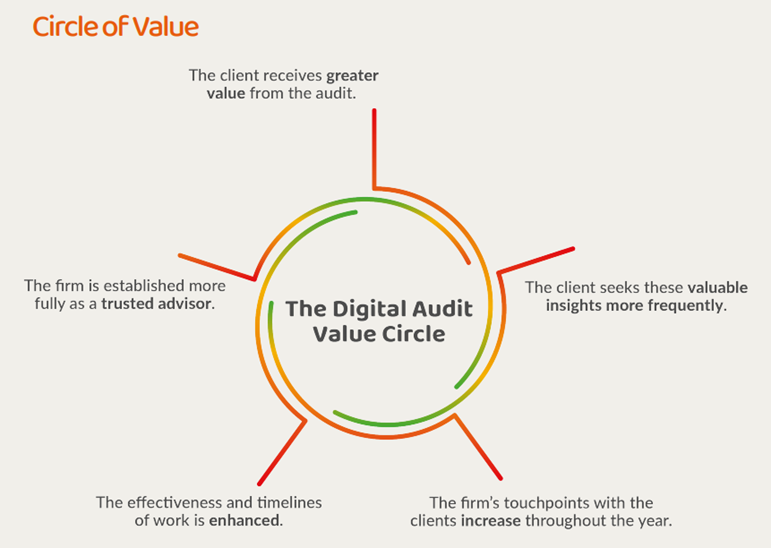Introducing the digital audit

Inflo outlines the importance of implementing a digital audit and introduces its new guide.
Over a decade ago, accounting firms moved from paper-based audit systems to paperless. In most cases, this simply moved a ‘document-centric’ audit approach from paper to electronic but continued the same ‘audit binder’ approach that has been in place for decades. As a profession, we’ve changed our storage media and document formats, but we’ve not meaningfully changed processes, outputs or client value. Fundamentally, the way the audit is conducted has remained essentially the same.
This is all set to change
Accounting firm clients, as well as existing and prospective staff, expect accounting firms to be not just digitally savvy but digitally progressive. They expect their accounting firm to be financial data experts, using new technologies to continually improve the client and the staff experience. Achieving this level of expertise and leadership with authenticity will require firms to pursue digital opportunities and embrace digital transformation.

Don’t get left behind
If you are looking to gain competitive advantage and attract clients by adopting new technologies which allow your firm to provide clients with better service and greater value, look no further. Our digital audit guide is a must-have for any firm expecting to remain competitive and relevant in the accounting profession.
In our guide, we walk you through a new way of thinking about the value of the audit and a new way of conducting the audit, putting you on a path to true digital transformation.
Download the guide now and learn more about:
- What a digital audit is
- New client experiences
- Enhancing your audit quality
- Transformation steps
- Phased approaches of digital adoption
- Key considerations.
Watch the launch event on-demand
As part of our campaign to drive adoption of the digital audit, Inflo ran a one-hour virtual event to share insights from leading industry influencers on the benefits of adopting a digital audit. The session is now available to watch on demand.
This blog is one of a series of articles from our commercial partners.
The views expressed are those of the author and not necessarily those of ICAS.
